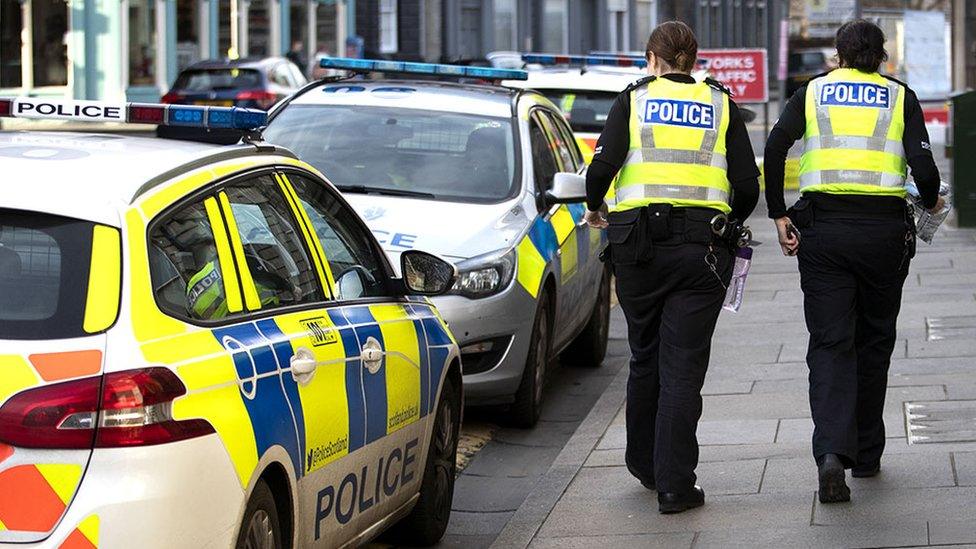The police officers dealing with a surge in mental health call-outs
- Published
Watch: "We've been dealing with mental health call-outs pretty much all day"
Less than an hour into the backshift at Edinburgh's Howdenhall police station, a call comes through about a man armed with an axe and knife and in a state of distress.
The police race to the scene and within minutes the immediate threat is safely resolved.
But for some of the officers, it's only the start of their involvement with the man.
Two constables spend four hours waiting with him before he can be admitted to a psychiatric hospital. Another has to guard his flat until a joiner fixes the broken front door.
Police Scotland says there has been a vast increase in calls about individuals giving cause for concern at a time when its frontline resources are increasingly over-stretched.

A small battering ram is used to gain entry to a property
The pandemic and now the cost of living crisis have been blamed for a deterioration in the nation's mental wellbeing.
Budget pressures at Police Scotland mean officer numbers are falling towards their lowest level since 2007.
This year the force has attended about 20,000 mental health incidents every month. Roughly nine out of 10 of them did not involve a crime.
Around one in six incidents dealt with by the police involved mental health.
PC Kate Gardner, who has been an officer for two years, says: "It's becoming more and more common that mental health is what we do now."
The blue light call to the man with the hammer and knife is a dramatic start to a shift which then largely settles into a series of welfare checks which have to be dealt with within four hours.
PC Gardner and her colleague PC David Macleod trace a vulnerable person who had not responded to phone calls from their support worker for three weeks.
Watch as police track down woman missing from Edinburgh hospital
They establish that a man who had told the police he wants a self-loading rifle presents no risk to himself or others.
When the officers are sent to look for a woman who had absconded from a psychiatric ward, they find her flat in darkness.
No-one is answering the front door but there are signs that someone is inside, so PC Macleod uses a small battering ram - "the big red key" - to gain entry.
The woman is there. The officers speak to her quietly and gently as they take her back to the hospital.
Senior officers have long believed that they are filling gaps left by other agencies.
Police Scotland's Deputy Chief Constable Malcolm Graham says officers can struggle to access services that are better placed than they are to deal with mental health.
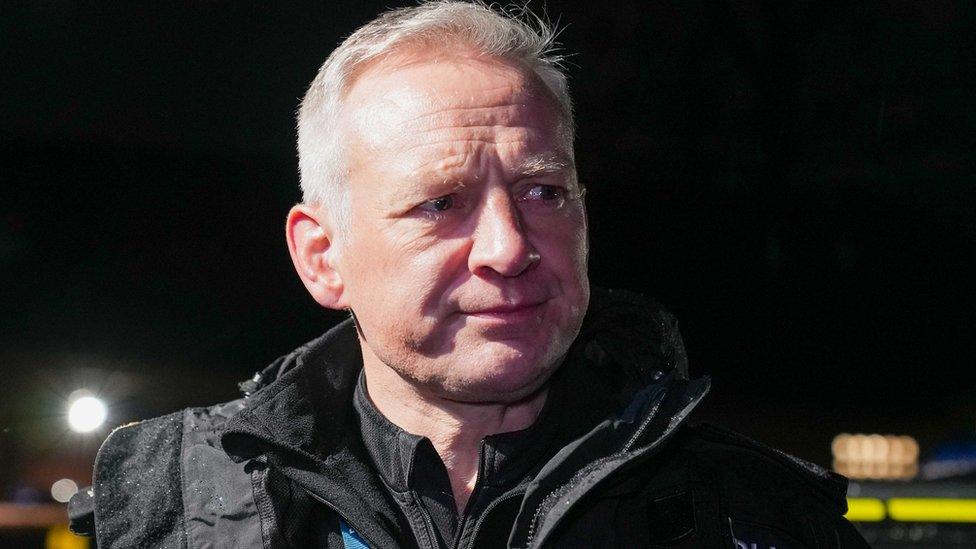
DCC Malcolm Graham said a new system for assessing calls was beginning to reduce officer deployments
In another recent incident in a different city, the police spent two hours trying to help get for a man in distress.
They were unsuccessful but stayed with him until they felt he was well enough to be left alone.
An hour later, they learned he had taken his own life.
It is a UK-wide issue. In England and Wales, many forces are adopting a new approach where they will only attend mental health-related incidents if a crime is being committed or if there's an immediate threat to life.
DCC Graham says Police Scotland is not seeking to copy that approach but a new system for assessing calls is beginning to reduce officer deployments.
"At national level, we're talking to senior partners in different health services to make sure we're providing care and support that's needed, when it's needed," he explains.
"If we can assure needs are going to be met through a risk-based approach and through other services stepping in when needed, that can hopefully free up the police to deal with what only the police can deal with - serious crime, serious harm and serious vulnerability at the point of crisis."
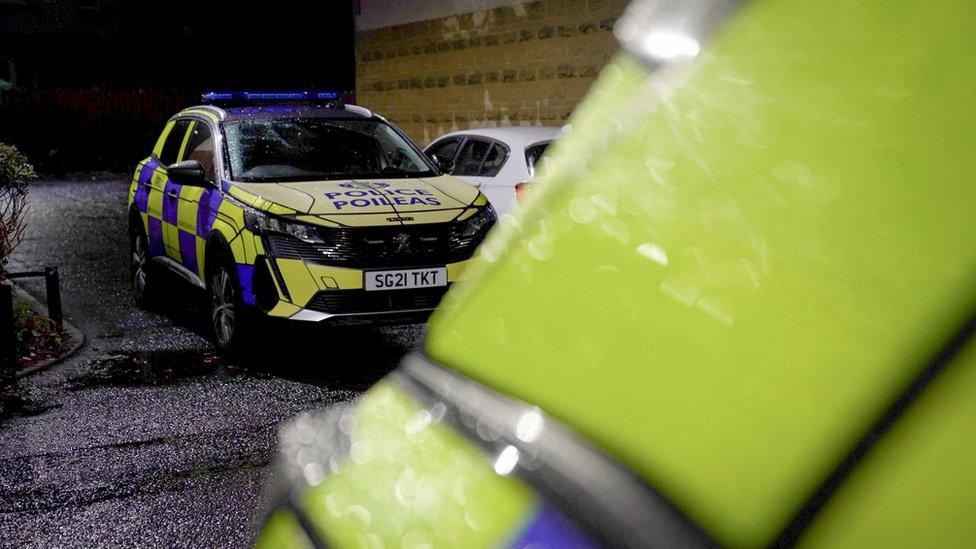
There is general agreement that most of the time, the police are not the most appropriate organisation to respond to people in crisis or distress.
The search for a solution is underway but with public finances tighter than ever, it will be difficult.
The Royal College of Psychiatrists in Scotland says there's a workforce crisis in the police, social work and psychiatry.
Scotland's chief inspector of constabulary has called for a strategic whole system review of mental health services.
And campaigners at Scottish Action on Mental Health say any change in approach by Police Scotland force must have people with mental health problems its heart.
The Scottish government is well aware of the issue. It says it is working with the health service and the police to reduce unnecessary demand on the frontline.
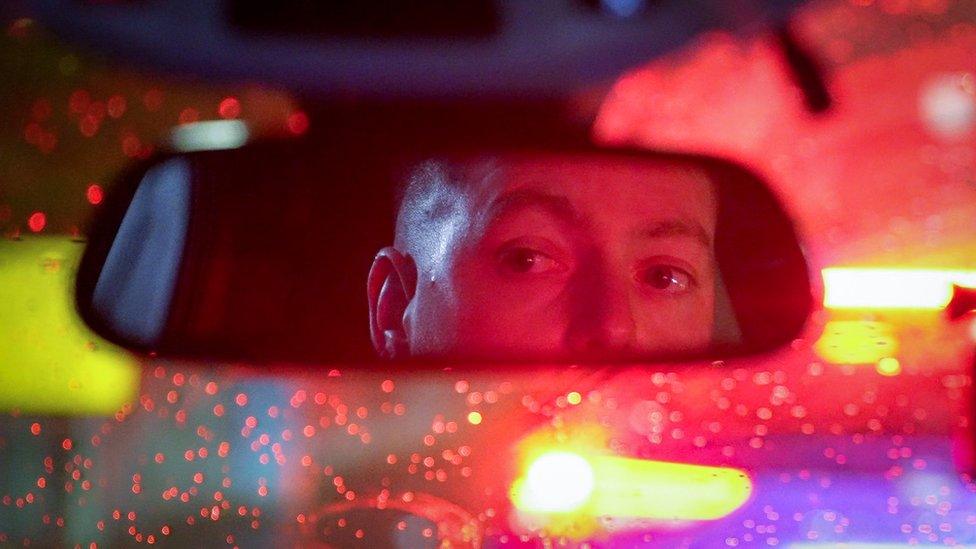
PC Macleod has been with Police Scotland for six years
Towards the end of the shift, the ambulance service tells the force that it has been unable to find a woman who had reported feeling suicidal.
When PCs Macleod and Gardner arrive, the woman has returned and is standing outside her home.
The officers established she was no longer thinking of harming herself and said they would look into whether she should be given extra care.
When they left, she was watching from her front window, cuddling her dog.
Asked if this was what she signed up for, PC Gardner replied: "Yes and no. I've signed up to help people. I didn't expect there to be so many of these calls and it's been quite eye-opening."
PC Macleod has been with the force for six years.
"This was a normal shift," he said. "It's what we deal with. Someone's got to do it."
Photographs by Morgan Spence
Related topics
- Published18 October 2023
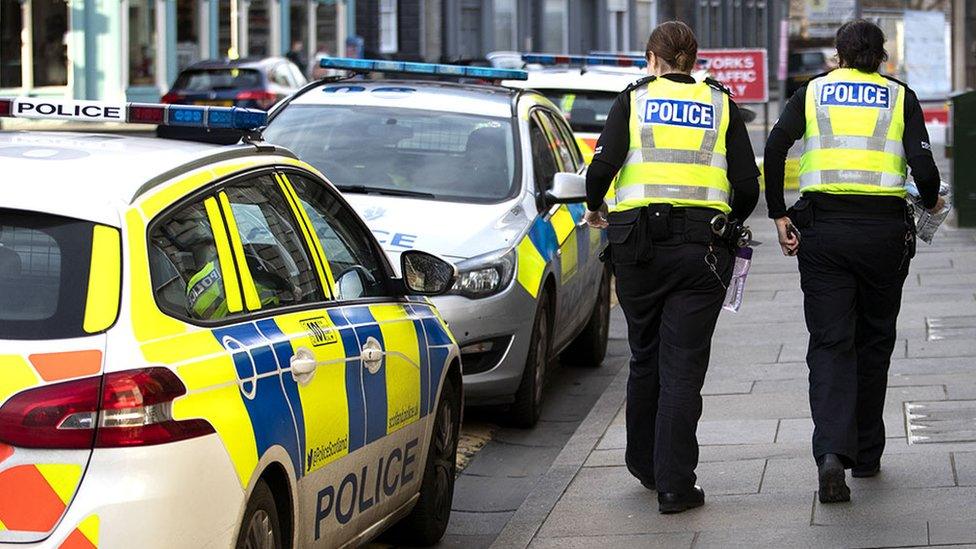
- Published30 June 2022
